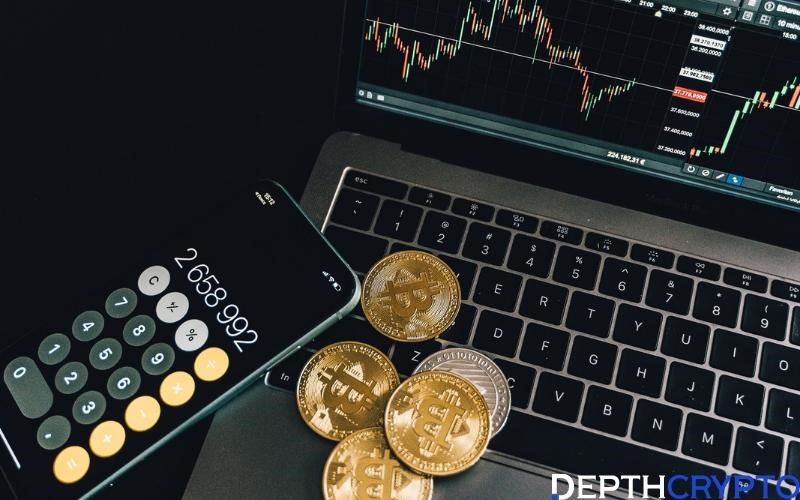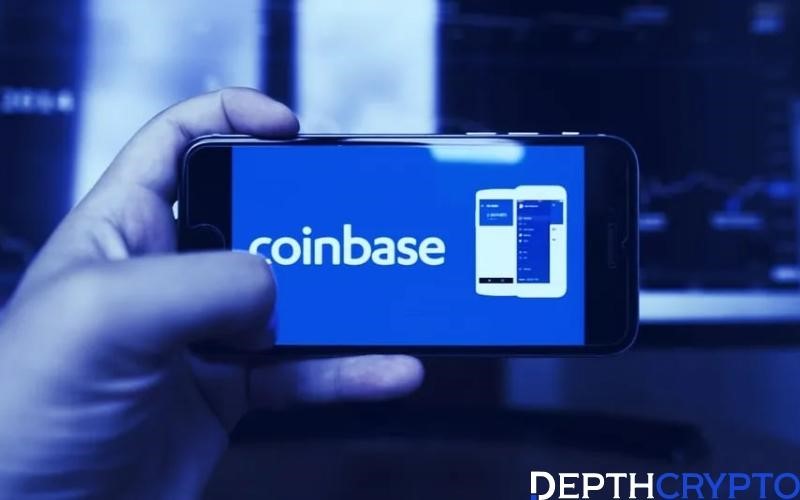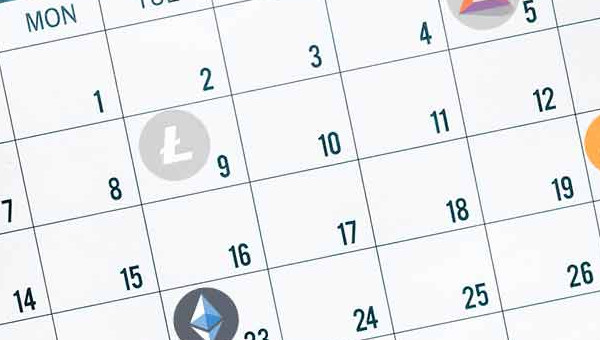
Do you want to enjoy the best of the crypto world? Chances are, it’d be a dream come true.
With the best crypto exchange, you can conveniently trade digital assets, grow your crypto portfolio, and succeed in crypto.
But how do you know the best crypto exchange among the lot? And there are hundreds of them.
Don’t worry; we have done the underground work to present the best crypto exchanges in 2023.
Read on to find out which crypto exchange best suits your needs.
8 Best crypto exchanges in 2023
1. Crypto.com: Best for security

Pros:
- It offers an array of digital assets for trade and investment.
- Low transaction fees via cash transfer.
- It features top-notch security measures.
- It supports about 250+ cryptocurrencies.
Cons:
- High transaction fees for credit/debit card purchases.
- It lacks crypto-to-crypto trading options.
- It lacks customer support.
Crypto.com is overall a good choice if high security and excellent user experience plus access to multiple products matter to you.
Launched in 2016, Crypto.com is among the best-performing crypto exchanges. Aside from being an exchange, Crypto.com has its native Blockchain (Crypto.org Chain) and its underlying token CRO.
The protocol also features yield-generating crypto products, a lending platform, an app, and crypto visa/debit/credit cards.
The exchange supports about 250 digital assets and offers its services in 90 countries.
Crypto.com stands out for two reasons. First, it upholds extra security measures to safeguard customers’ assets, like 2FA authentication and biometric, phone, and email verifications. It also stores crypto assets in cold storage.
Furthermore, the exchange underwent different penetration tests to determine the system’s security and passed.
Secondly, crypto.com has an impressive mobile app featuring many tools and functionalities. The app allows you to buy, sell, exchange, transfer, trade, and earn interest on your cryptocurrencies. Thus, you’ll have a great user experience when dealing with crypto.com.
The exchange also charges low transaction fees, about 0.075%. However, expect more fees if you trade larger volumes.
Meanwhile, the exchange’s major drawback is its lack of customer service when you need them.
With the exchange’s non-custodial Defi wallet, you can send crypto conveniently and earn interest on coins. You can also participate in margin trading and crypto loans.
2. Coinbase: Best for beginners

Pros:
- It’s beginner friendly and has an intuitive user interface.
- It supports more than 230 digital assets and offers.
- It offers $5 worth of Bitcoin as a reward for signing up.
- It offers products such as staking, wallet, and exchange.
- It offers experienced traders and investors advanced trading options.
- It provides beginners with learning resources.
Cons:
- It has a complicated fee structure.
- It charges high fees compare to others.
- Its simple trade option has fewer tools and products than advanced trade.
Coinbase is perfect for you if you’re a beginner because it features a simple interface and comprehensive educational resources on crypto to get you started.
Reputed as one of the oldest and most well-known cryptocurrency exchanges worldwide, Coinbase was launched in 2012.
The trading platform features an easy-to-navigate interface and user experience. It was built with beginners in mind and to lower the entry barrier.
Coinbase rewards users through its Coinbase Earn program for completing each educational module on its website. The learning resources vary from Blockchain to crypto trading and investing and everything in between.
The exchange is not left out in the security aspect. It features 2FA authentication and stores about 98% of customers’ cryptocurrencies [1] on offline cold storage.
It also features an insurance policy backed by FDIC to cover custodial wallets with about $250,000 in case of security breaches.
According to Coinbase review, the platform has good products and coverage for a beginner if you can look past its high fees. Meanwhile, you can opt for the company’s sister exchange, Coinbase Pro, if you prefer more advanced trading and charting features.
3. Bisq: Best Decentralized exchange (DEX)

Pros:
- It supports a wide selection of currencies.
- It requires no KYC adherence and supports short verification.
- It supports several payment methods.
- It offers high privacy and security.
- It has an easy-to-use user interface.
- It supports instant withdrawals.
Cons:
- Its app is basic and unsuited for advanced traders.
- It charges somewhat high fees.
Bisq is best for you if you prefer to trade with decentralized exchanges and still have multiple currencies.
Previously known as Bitsquare, Bisq was launched in 2019. The exchange was funded from savings and donations from its community members.
Bisq is built using an open source code, meaning that developers can evaluate its security level.
Unlike many decentralized exchanges, Bisq features an intuitive interface and supports vast cryptocurrencies, including Bitcoin, Cardano, XRP, Dogecoin, etc.
The trading platform offers a peer-to-peer marketplace for users, traders, and investors to transact without intermediaries.
When it comes to security, Bisq does a good job. In addition to its inherent security due to decentralization, it features multi-signature and a security deposit system. So, users can have trustless transactions and control over their funds during trades.
4. Gemini: Best for security

Pros:
- It’s a liquid exchange.
- It has a robust security infrastructure.
- Its services are available in the US.
- It insures customers’ assets following FDIC policy.
Cons:
- It has a limited selection of cryptocurrencies.
- It demands high fees.
Gemini is ideal if you’re looking for a highly liquid and secured exchange. The platform complies with the SOC 2 standard. It also insures users’ funds are in a hot wallet in the event of a cyber attack.
In 2014, Tyler and Cameron Winklevoss founded Gemini. Unlike Coinbase, Gemini was designed with advanced traders in mind. It offers an advanced interface and dashboard. The exchange’s services are available in over 60 countries worldwide.
Following the KYC policy, Gemini, like other centralized exchanges, will request your details to prevent identity theft.
In addition to 2-factor authentication to secure customers’ accounts, Gemini is SOC 2-certified. The SOC 2 means that the exchange’s security and compliance system passed a third-party audit.
Gemini supports about a hundred coins and tokens. It also offers crypto reward cards and enables customers to purchase goods and services with cryptocurrency.
5. BitMart: Best for altcoins

Pros:
- It offers a wide selection of cryptocurrencies of 1000+.
- It features a simple buy-and-sell order.
- It offers the opportunity to earn interest on crypto assets.
- It charges fair trading fees.
- Its services are available in the US.
Cons:
- It has a history of large-scale hacks resulting in over $190 million loss.
- It has poor customer support.
- It’s relatively new in the crypto space.
BitMart is ideal for you if you’re an experienced trader and want to trade vast cryptocurrencies and tokens. You can sign up with BitMart from anywhere worldwide because it has no geographical restrictions.
BitMart is a global crypto exchange founded in 2017. The trading platform beats other exchanges owing to the number of cryptocurrencies it supports.
With 1000+ coins and token support, you have a higher chance of finding whatever coin you’re looking for in the BitMart exchange.
Global users from 180+ countries buy, sell and trade on the exchange.
The platform offers users an earn feature allowing them to earn interest on their crypto coins held on the platform.
In addition, you can claim a transaction fee discount when you hold the exchange’s native token, BMX.
Aside from the exchange’s poor customer service, in Dec. 2021, BitMart lost $196 million of customers’ wealth to a cyber-attack.
Though the company vow to replace the funds, the attack is a tough blow to the company’s trust.
6. Binance.US: Best for low fees

Pros:
- It charges low fees.
- It features excellent security.
- It offers advanced trading charts and data graphs.
- It supports 130+ cryptocurrencies.
- It offers educational resources.
- It offers trading fees discount.
Cons:
- Not all services are unavailable in some US states.
- It features lesser crypto-to-crypto pairs compared to the worldwide Binance site.
- Its services are unavailable to some US residents.
- In 2019, its parent company, Binance, was once hacked.
Binance.US is your go-to exchange if you’re a sucker for low fees. The exchange has the best fee structure compared to other exchanges.
The exchange’s parent company, Binance, launched in 2017, is the leading global cryptocurrency exchange by trading volume. Binance.US is its United States partner.
Binance.US outstanding offer is its maker/taker fee structure starting at 0.1%, whereas major exchanges begin at 0.5%. The best part is that the fee decreases the more your trading volume increases.
The exchange’s other competitive edge is its discounts when you use BNB —Build and Build utility token— to buy and sell other virtual currencies.
Binance.US supports more than 130 crypto coins and tokens. The trading platform caps it by allowing you to buy crypto directly with USD. Thus, saving you money from conversion fees.
Binance.US combines the best functionalities at low prices, such as margin trading and order types like stop orders, limit orders, and market orders. The platform’s services are available in more than 100 countries.
7. Kraken: Best for experienced traders

Pros:
- It’s a highly liquid exchange.
- It offers a wide selection of digital assets.
- It features low trading fees.
- It provides extensive learning resources on crypto.
- It has excellent customer support.
- Its services are available in 159+ countries.
Cons:
- Its services are unavailable in some US states.
- It accepts only ACH and wire transfer payment methods
- It accepts a few fiat currencies.
Kraken’s advanced trading platform, Kraken Pro, is the perfect choice for expert traders. The exchange offers you the best of cryptocurrency exchanges, such as low trading fees, advanced order types, margin, and futures trading.
Kraken is one of the oldest crypto exchanges that has maintained a trustworthy reputation since 2011. It’s the third-largest crypto exchange by trading volume [2].
With Kraken, you can buy, sell, and trade 185+ virtual currencies from nearly anywhere in the world at the lowest trading fees.
Kraken has two separate trading platforms, the primary (Kraken) and the advanced platform (Kraken Pro).
As an advanced trader, you can benefit from Kraken’s Pro, which offers customizable chart analysis tools, high speed, detailed insight into the order books, and 13 order types.
Furthermore, you can engage in spot and margin trading and execute crypto derivatives trading strategies.
Kraken’s drawback is its limited funding method which supports only ACH and wire transfers.
8. Cash App: Best for Bitcoin

Pros:
- It’s beginner friendly and has an intuitive interface.
- It supports the Bitcoin lightning network.
- It supports trading stocks.
- It offers debit cards.
- It features instant withdrawal.
Cons:
- It has high trading fees.
- It’s a Bitcoin-only exchange. It doesn’t support altcoins.
- Its services are available only in the UK and US.
- It has several restrictions, including deposit limit, sales limit, etc.
- It doesn’t insure customers’ crypto assets.
Cash App is your go-to exchange if you’re looking for a user-friendly and seamless way to trade and store Bitcoin and stocks with your mobile devices.
Block, Inc, previously known as Square, Inc., launched the Cash App in 2013. The exchange is available in only two countries, the US and UK.
Cash App is a peer-to-peer mobile banking app that lets you send, buy, sell, store and invest Bitcoin. It also supports other investment elements such as ETFs, stocks, and bonds.
One of the exchange’s outstanding features is that it allows you to withdraw your Bitcoin balance to a wallet outside the exchange — a feature its competitors do not support.
Users commend the instantaneous transfer and withdrawal thanks to the Bitcoin lightning network integration.
| CEXs | Number of currencies | Trade limit | Transaction fees | Minimum deposit | Customer support |
| Crypto.com | 250+ | Yes | 0.00% to 0.075% | $1 | Poor |
| Coinbase | 230+ | No | 0.00% to 0.60% | $2 | Fair |
| Bisq | 120+ | No | 0.1% to 0.70% | Undisclosed | Fair |
| Gemini | 120+ | Yes | 0.0% to 0.40% for active trade. About 1.49% for most transactions. | Varies | Poor |
| BitMart | 1,000+ | No | 0.045% to 0.25% | $50 for BitMart purchases | Poor |
| Binance.US | 130+ | Yes | 0.00% to 0.06%. As high as 3.75% for debit card purchases | $10 | Poor |
| Kraken | 185+ | No | 0.00% to 0.26% | $1 | Good. 24/7 specialist support. |
| CashApp | 1 | Yes | Differs | $1 | Poor |
Best Centralized Exchanges
What are Centralized exchanges (CEX)
Centralized exchanges are the type of crypto exchanges owned by private companies. They provide a trading platform to investors and traders where you can buy, sell, send, exchange, and trade cryptocurrencies.
Centralized exchanges offer a wide array of trading pairs and boast higher liquidity and trade volumes.
Due to its friendly interface, smooth onboarding process, and customer service, CEX is ideal for beginner traders and investors.
The downsides of centralization exchanges include:
- They’re susceptible to hacks and cyber attacks.
- They adhere to the KYC policy, which requires you to provide personal information such as ID cards, contact details, etc.
Crypto.com, Coinbase, Bisq, Binance, Gemini, and Kraken are examples of centralized exchanges.
Best Decentralized Exchanges

What are Decentralized exchanges (DEX)
As the name suggests, Decentralized exchanges operate without a central point of control. The Servers and control of these exchanges are spread across computers in different parts of the world. The system is unaffected when one or a few computers are attacked.
Decentralized exchanges offer airtight security that’s absent from centralized exchanges. And many users who take security seriously prefer DEXs to CEXs.
Decentralized exchanges are marketplaces that facilitate peer-to-peer trading. Unlike CEX, DEX has a more relaxed registration process, where users can trade with anonymity.
The downsides of decentralized exchanges include:
- Complex user interface
- Lack of customer support
- Low trading volume
- Lower liquidity
Bisq, Curve Finance, PancakeSwap, dYdX, and Uniswap are examples of decentralized exchanges.
Table: Comparing the best-decentralized exchanges.
| DEXs | Launched | Trading volume | Number of tokens | Transaction fees |
| Uniswap (v3) | May 2021 | $373,763,396 | 400+ | 0.30% |
| PancakeSwap | Sept. 2020 | $96,570,587 | 50+ | 0.25% |
| dYdX | April 2019 | $354,639,206 | 45+ | 0.04% |
| Curve Finance | Jan. 2020 | $68,894,023 | 35+ | 0.02% to 0.05% |
| Bisq | April 2019 | $98,021.39 | 120+ | 0.10% to 0.70% |
Hybrid exchanges

What are hybrid exchanges (HEXs)
Hybrid exchanges can serve you if you want to enjoy the best of both worlds.
Hybrid exchanges are a new generation of crypto trading platforms that aim to surpass the challenges and limitations of CEXs and DEXs.
They offer the combined functionality and liquidity of centralized exchanges plus the gripping security of decentralized exchanges.
Even though Hybrid exchanges offer fast transaction speeds and the best user experience, they are a new technology trying to gain footing.
Eidoo, Nash, Legolas, and Qurrex are examples of hybrid exchanges.
7 Key Factors to choose the best Crypto Exchange

Consider these seven critical factors before you settle for a cryptocurrency exchange:
1. The number of coins you can trade
Even though there are about 21,000 cryptocurrencies, not all crypto exchanges offer the varieties you may want to trade.
Some exchanges trade Bitcoin only, some Ethereum only, while others trade DeFi tokens in addition to Bitcoin and Ether.
Thus, you must note down the currencies you want to trade and match them with a crypto exchange that lists them.
Crypto exchanges like Coinbase, Gemini, and Kraken, offer a wide range of digital assets that serve beginners and more experienced investors and traders.
For instance, Coinbase enables you to trade more than 450 cryptocurrencies, while Kraken lists 160 cryptos, including meme coins.
2. Sufficient liquidity
The ability to quickly convert your digital assets to cash and vice versa is called “liquidity.”
You’ll want to buy crypto when its price surges at nearly the same price quoted on your screen. The reverse is the case when a crypto’s price falls.
Look at the trading volume of crypto exchanges to determine which has sufficient liquidity. The higher the trading volume, the better.
Sites like CoinMarketCap, and CoinDesk provide 24 hours trading volumes of many exchanges. Recently, Coinbase and Kraken have maintained the highest trading volumes.
Furthermore, it would be best if you watched out for exchanges that have maintained excellent track records for at least five years.
3. Compare the fees
Nearly all crypto exchanges charge transaction fees each time you trade, withdraw or make a deposit.
However, these fees vary across exchanges depending on the transaction method, volume, and type. The average fees range between 0 – 5% per transaction.
4. Security
The exchange’s security is a vital factor you shouldn’t compromise because crypto exchanges are prone to hacks.
For instance, Coinbase was hacked in 2021, where 6000 customers were exposed. In 2014, the BitMart exchange lost about $150 million to hacks.
Thus, avoid signing up with an exchange with a recurring history of hacks and attacks.
Meanwhile, most crypto exchanges provide on-site security, like 2-factor authentication (2FA), etc., against identity theft and phishing links.
Other exchanges like crypto.com provide extra security via biometric logins like facial and fingerprints to confirm your identity.
5. Consider the controls
Since almost all crypto exchanges are unregulated, you should look out for exchanges with security controls and financial audits in place.
Go with exchanges that have audited SOC— Service Organization Control reports.
SOC 1 means an exchange’s financial operations and reporting controls are well-designed and functional.
SOC 2 confirms that the technology systems driving an exchange’s security, processing integrity, network availability, and confidentiality controls are efficient.
These reports, however, may not be available on exchanges’ websites. Most exchanges circulate press releases when they complete SOC 1 and 2 examinations. You may consider reaching out to the exchange’s customer support if you can find the reports.
Meanwhile, the New York State Department of Financial Services issued a Bitlicense to exchanges like Coinbase, and Gemini, to certify that strict business controls are in place.
6. Vet the insurance policy
Aside from security, verify whether an exchange is insured. Most reputable crypto exchanges maintain robust insurance policies.
Although the insurance type and coverage vary across exchanges, most typically cover cyber fraud, thefts, dishonesty, or destruction.
Thus, it’s best to check the insurance coverage an exchange provides. You can find the answer in the FAQ sections on an exchange’s website or in the user agreement given to you when you signed up.
In addition, ensure that the exchange provides FDIC protection for your funds. Because even though most exchanges offer this backup, some do not.
7. Get a handle on the tax reporting
Regarding tax, profits on cryptocurrencies are taxed similarly to stocks and bonds.
If you want to trade cryptocurrencies without tax issues, go to the exchange’s website and search “crypto taxes.”
Alternatively, you can contact customer support to confirm when and how you can receive tax forms.
For instance, Gemini will issue you a 1099-MISC form if you earn more than $600 in crypto income within a year. You could download the form from the website or request another if you didn’t receive it.
Crypto Exchanges Guide

What is a crypto exchange?
A cryptocurrency exchange is a platform or marketplace where you, investors, and traders can buy, sell or exchange digital currencies like Bitcoin (BTC), Ethereum (ETH), Dogecoin (DOGE), and Fiat, like Euros or US Dollars.
Crypto Exchanges make trading and exchanging cryptos a hassle-free process. They’re the heart of the crypto ecosystem because most traditional financial institutions do not list cryptocurrencies in their portfolios.
How do crypto exchanges work?
Most crypto exchanges serve as intermediaries between buyers and sellers. You must deposit money in your account on an exchange to buy crypto from the platform.
Alternatively, you can deposit your cryptocurrency if you want to trade it for another (crypto-to-crypto spot trading). Similar to paying a fee for changing USD to EUR, you’ll pay a fee for converting one crypto to another.
Nearly all crypto exchanges accept transactions fees via:
- ACH
- PayPal
- Bank transfer
- Money orders
- Credit/debit cards.
While some cryptocurrency exchanges will let you transfer your crypto assets from their platform to any wallet, others, like eToro and Robinhood, restrict you from transferring funds to third-party wallets.
Crypto wallet vs. exchange

Let’s make an exaggerated example; crypto exchanges are like banks, and crypto wallets are like bank accounts. They both help you access and manage your crypto wealth.
Crypto exchanges are trading platforms where you can buy, sell and exchange cryptocurrencies. Crypto wallets are digital wallets that store your crypto assets.
Although there are independent wallets, there are also many exchange-based wallets. Once you register on any crypto trading platform, you can access a unique digital wallet. Such wallets are referred to as web-hosted wallets.
However, if you’re a long-term trader, it’s best to have an independent crypto wallet (non-custodial) to store and secure the currencies you aren’t trading.
If you decide to use an independent, non-custodial wallet, safeguarding, backing up, and managing your crypto funds becomes your responsibility. Check here for the best crypto wallets.
How to open a crypto exchange account?

Depending on whether you’re signing up on a decentralized exchange or centralized exchange, you may need to provide personal details.
You can open an account on decentralized exchanges without verifying your identity or filling in sensitive information. The story is different in CEXs, which require you to go through a stringent Know your Client (KYC) process to protect against fraud and money laundering.
If your choice is a centralization exchange, you need the following to complete the signup process:
- Full name
- Date of birth (DOB)
- Email address
- A scanned copy of a government-issued ID like a passport, voters card, driver’s license
- Home address
- Phone number
- Social Security number
You start by clicking get started or the signup button. Next, you fill in your information. An email will be sent to the email address you entered to verify it’s yours. Confirm the email and proceed.
Some exchanges may demand a copy of your utility bill with your physical address. To complete the process, you’ll need to add a payment method and deposit funds into your account.
How to buy cryptocurrency?

Once you’ve deposited funds into an exchange, you can immediately start buying, selling, and trading cryptocurrencies.
Some cryptocurrency exchanges will offer you only simple market orders. Others will allow you to trade more advanced order types, such as limit and stop orders.
Note that unless you use a non-custodial wallet, your cryptos are stored in the exchange’s custodial wallet. Thus, you have little control over your coins.
Most crypto exchanges keep cryptocurrencies offline or have hardware storage for extra security.
However, if you’d prefer to keep your wealth in your custody, you can transfer your crypto assets and private keys from the exchange to your hot or cold wallet.
What are the benefits of keeping my assets on exchange?

Storing your digital assets on an exchange comes with some benefits. They include:
1. Staking
You can stake and earn interest on your cryptocurrencies if they’re on the exchange’s wallet. Many exchanges offer soft and hard staking options on their platforms.
Soft staking allows you to access and take your cryptos while daily interest is added.
With hot staking, you earn interest on your cryptos but have no access to them during the staking period.
2. Events
How does winning rewards or physical prizes sound to you? Appealing, right?
Some exchanges host a trading competition where the customer with the highest trading volume for a specific cryptocurrency wins more crypto or prizes like electronics, gadgets, cars, etc.
For instance, Crypto.com hosts an event called The Syndicate. You need to stake a minimum of 10,000 of crypto.com’s native token (CRO) for 180 days to access the event.
The Syndicate lasts 24 hours, during which eligible users can buy crypto at a 25% to 50% discount.
3. Convenience
Independent or non-custodial wallets require your unfiltered attention and security. You can relax if you’re using a custodial wallet since managing, backing up, and protecting your assets are off your shoulders.
Using the exchange’s wallet is more convenient because you can easily access and trade your digital assets for other cryptocurrencies.
Final verdict
Regardless of your financial goals, choosing the best cryptocurrency exchange is essential.
Gemini is ideal for you if security is your major concern. If you’re an experienced trader but want low fees, then Kraken is the best choice. Bisq tops the chart as the best-decentralized exchange. Thanks to the many crypto exchanges available, you can find the best option to serve you well
FAQ
How many crypto exchanges are there?
There are about 546 cryptocurrency exchanges with a total 24h trading volume of $51.5 Billion. Binance, Coinbase, and Kraken are the leading crypto by trading volume.
Which crypto exchange is good for beginners
Coinbase and Gemini are the best crypto exchanges for beginners due to their simplicity and intuitive interfaces.
What’s the difference between a crypto exchange and a crypto brokerage?
A cryptocurrency exchange offers a platform where traders and investors buy, sell, trade, and exchange digital assets based on the current market price. Crypto exchanges act as intermediaries and charge transaction fees for each trade.
On the other hand, a cryptocurrency broker is a person or company that acts as an intermediary within crypto markets to facilitate the buying and selling of cryptocurrencies at prices fixed by the broker.
Why are so many crypto exchanges unavailable in the US?
The US government is wary of cryptocurrency’s anonymity and lack of regulation, which makes it challenging for law enforcement agencies to track criminals who use crypto. Thus, many crypto exchanges can’t offer their services in the US.
Is Binance better than Coinbase
Binance is designed for people who understand crypto and its investing options. Thus, it’s an advanced exchange for newbie traders.
Meanwhile, Coinbase is beginner friendly and convenient to use. In a nutshell, both exchanges offer to vary, albeit top functions and performance.








